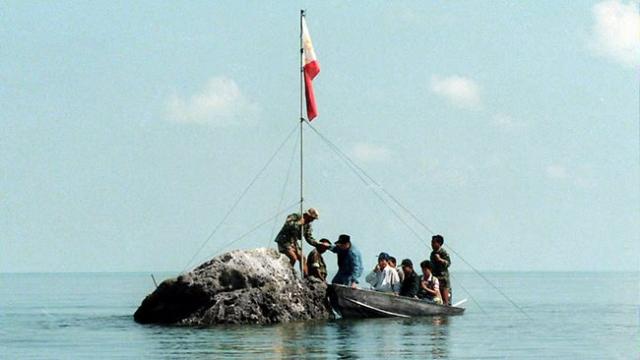Breaking
Malacañang keeps faith on the power of diplomacy
MANILA — Malacañang is keeping its faith on the power of diplomacy amid fresh allegations of ramming and poaching that developed off the disputed Bajo de Masinloc in Zambales recently.
Presidential Spokesman Edwin Lacierda told the state-run Radyo ng Bayan in an interview Saturday that the Philippines would continue exercising the necessary diplomatic mechanisms in addressing the issue.
This is despite China’s apparent disregard, as some observers believed, for all the diplomatic protests already filed by the Department of Foreign Affairs (DFA) regarding the matter.
“We have filed the necessary diplomatic protest because that’s an acknowledgment that we do not agree with what they (China) do. And diplomatically, while we seem to feel or we seem to think that it has no effect, that presents our protest; that presents action on the part of the Philippine government,” Lacierda said.
Two protests notes were handed over by the DFA last Wednesday to representatives of the Chinese Embassy in Manila concerning the Jan. 22 and Jan. 29 incidents in Bajo de Masinloc as reported by the Philippine Coast Guard.
The Jan. 29 incident involved three Philippine-flagged fishing boats—F/V OG Barbie, F/V Ocean Glory 2 and F/V Ana Marie—being ‘intentionally rammed’ by Chinese Coast Guard Vessel 3412, “causing damage to the vessels and endangering the lives and safety of the Filipino fishermen on board,” the DFA said in its Feb. 4 press statement.
“On 22 January 2015, at least 24 Chinese utility boats were seen collecting giant clams in the lagoon of Bajo de Masinloc, and Chinese fishing vessels were likewise spotted transporting collected giant clams,” it said.
The Philippines strongly protested these illegal activities with the DFA, saying that China might have breached its obligations under the 1982 United Nations Convention on the Law of the Sea, the Convention on Biological Diversity, and the Convention on International Trade in Endangered Species of Wild Fauna and Flora by tolerating these harmful fishing practices of its nationals.
Lacierda said the government continued to ask third parties to look into the situation and seek their intervention so that China can be made to adhere to international law.
“That is why we have resorted to the international arbitration mechanisms as well as to the proposed ASEAN (Association of the Southeast Asian Nations) Code of Conduct on the South China Sea,” Lacierda said.
“Mahalaga pong mga international instruments ‘yan that can require proper behavior in the family of nations and we do expect China, since it claims and it is a member of the family of nations, to behave in accordance with international law,” he added.
Lacierda, meanwhile, reiterated that the Bureau of Fisheries and Aquatic Resources (BFAR) under the Department of Agriculture would continue providing safe fishing grounds to assist local fishermen along Bajo de Masinloc.
“Ang BFAR ang naglalagay ng mga payaw doon sa area so that magkakaroon pa ng pagkakataon ang ating mga mangingisda na magkaroon ng areas for fishing while this area, Bajo de Masinloc, is being in dispute right now,” he said.






















